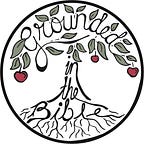I came across this Note recently on Substack:
Freedom is not being able to do whatever you want to do, whenever you want to do it.
That’s called being a slave to your passions.
A man who only ever does what he wants when he wants has lowered himself to the same instinctual level of an animal.
True freedom lies in the ability to deny what you want to do, in any given moment, in order to do what you ought to do.
The real test of a free man?
A man who has conquered his lower passions and has full sovereignty over the use of his rational mind and will to serve others above himself.
This description of freedom sent my mind whirring. These are the two verses that immediately came to mind:
John 8:31-32: 31 To the Jews who had believed him, Jesus said, “If you hold to my teaching, you are really my disciples. 32 Then you will know the truth, and the truth will set you free.”
Matthew 16:24: 24 Then Jesus said to his disciples, “Whoever wants to be my disciple must deny themselves and take up their cross and follow me.”
Shortly after, these verses followed:
1 Corinthians 10:23 (CSB): 23 “Everything is permissible,” but not everything is beneficial. “Everything is permissible,” but not everything builds up.
John 8:34: 34 Jesus replied, “Very truly I tell you, everyone who sins is a slave to sin.”
How can we be both free and be called to deny ourselves? That doesn’t sound like freedom as defined by this world. But God doesn’t work the way we do. If you put all these verses together, you find the true recipe for freedom:
1. Put up boundaries to follow. How do you set those boundaries?
What is beneficial?
What is true?
What is pleasing to Christ?
2. If anything is outside those boundaries, then the most freeing thing you can do is to deny yourself.
If it is permissible but not beneficial or constructive, then deny yourself.
If it is a lie you are telling yourself, then deny yourself.
If it is pleasing to self but not pleasing to Christ, then deny yourself.
3. It is within these boundaries that we find true freedom.
Can you do things outside of these boundaries? Yes, certainly. All things are permissible. But if they are not beneficial or constructive, if they are just feeding the lies that you tell yourself, then you are more a slave to those things than really truly free.
You will find more freedom (and health and joy) if you deny yourself and don’t do those things outside the boundaries you’ve set.
Here’s a practical example from my own life. I’ve mentioned before that I’ve been struggling with my relationship with food. Here’s how I see this playing out in how I deal with food.
I’ve heard that true freedom with food is to be able to eat whatever you want, whenever you want, and however much you want. But it is exactly this attitude about food that gets so many of us into trouble with our weight and health, including me.
Yes, I have permission to eat anything I want. Food in itself is neutral, no matter what that food is. Eating only “good” or “healthy” foods and denying myself “bad” or “unhealthy” foods doesn’t increase my morality, just like eating a piece of cake doesn’t make me a “bad” person. In fact, Jesus declared all foods clean:
Mark 7:18-19: 18 “Are you so dull?” he asked. “Don’t you see that nothing that enters a person from the outside can defile them? 19 For it doesn’t go into their heart but into their stomach, and then out of the body.” (In saying this, Jesus declared all foods clean.)
But is everything beneficial for me to eat? No. And honestly, there are times when I feel like I give so much power to food that I am truly a slave to it. I’m not free at all when I decide to eat whatever I want on a whim. Is this response to food pleasing to God? No. The sin, then, is not in what I eat but in the power I give food over me. No one or no thing should have that place of power in my life other than Jesus.
So what does true freedom with food look like?
True freedom looks like setting boundaries and sticking to them. What foods are actually beneficial to my life and my health? We know all the nutrition information, but what actually makes my body feel good?
For me, a focus on proteins, fruit, and vegetables makes me feel good. It takes away my cravings to snack, and I feel more motivated.
If I eat too much sugar, my motivation tanks. I’m grumpy and lethargic and just don’t want to do anything.
Knowing those things about myself helps me set boundaries for what is beneficial and how I can serve God by what I put in my body.
1 Corinthians 6:19-20: 19 Do you not know that your bodies are temples of the Holy Spirit, who is in you, whom you have received from God? You are not your own; 20 you were bought at a price. Therefore honor God with your bodies.
Does that mean I can’t ever eat outside those boundaries? No. But when I do, it needs to be a calculated, rational choice, not a craving or whim that I can’t control.
Maybe you struggle with something other than food. Maybe you struggle with selfishness or gossip or greed. Maybe you struggle with fear and anxiety. Maybe you struggle with alcohol or drugs or pornography. Maybe you struggle with apathy and laziness. We all have something we feel like we are a slave to in our lives. How can this view of freedom change how you approach that thing? What boundaries do you need to put up so that you can truly start living in freedom?
Jesus gave us this promise:
John 8:36: So if the Son sets you free, you will be free indeed.
Let’s start living with the freedom we have in Christ.







